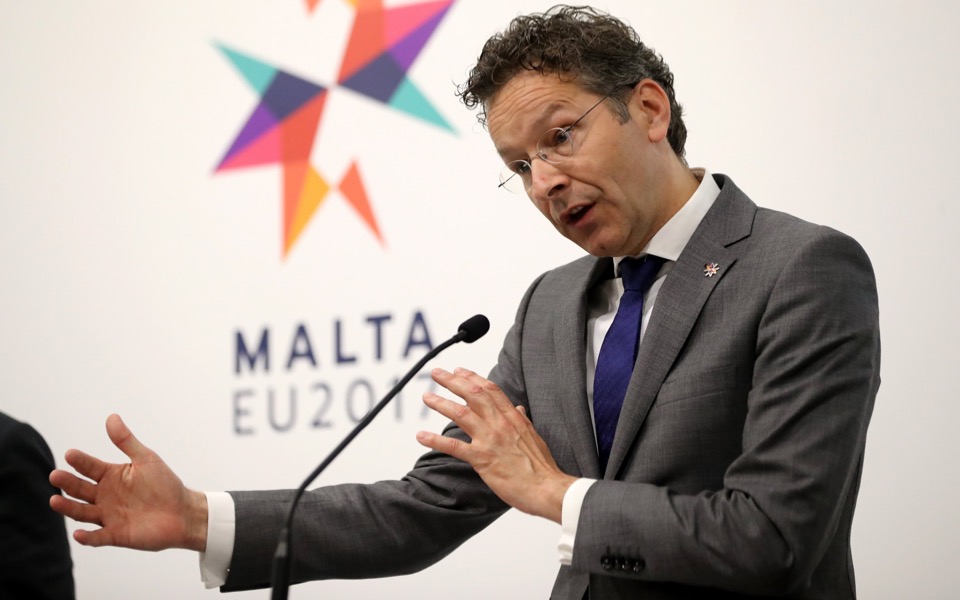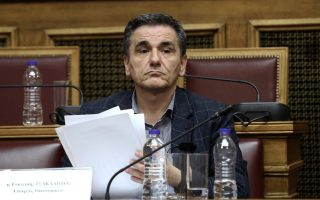Deal on broad strokes paves way for resumption of bailout talks

Representatives of Greece and its international creditors meeting in Malta on Friday agreed on the broad strokes of an agreement to conclude a stalled bailout review, paving the way for foreign auditors to return to Athens.
The measures will include pension cuts in 2019 worth 1 percent of gross domestic product, and an increase in tax revenues in 2020 worth another 1 percent to be raised by increasing the tax-free threshold. In total, the measures are worth 3.6 billion euros.
Finance Minister Euclid Tsakalotos admitted the deal was not ideal. “There are things that will not satisfy us, and there are things that satisfy us,” he said. “It is in the nature of every agreement for there to be compromises and things that will upset not generally the negotiating team but the Greek people.”
Tsakalotos said the measures for 2019 will be legislated in the coming weeks, along with countermeasures to alleviate austerity. The countermeasures, however, will only be implemented if Greece meets its fiscal targets.
Another major concession made by Greece was accepting that the International Monetary Fund will decide in 2018 whether the Greek economy is on track to enforce tax measures slated for 2020 as planned or whether those hikes should be brought forward to 2019, an election year.
Eurogroup President Jeroen Dijssebloem played up the positive side of Friday’s deal: that bailout monitors can return to Athens. Envoys are expected to return after Greek Easter later this month.
“The big blocks have now been sorted out and that should allow us to speed up and go for the final stretch,” Dijsselbloem said. Once a broad deal is reached in coming weeks, Dijsselbloem said, officials will be able to turn to Greece’s medium-term budget targets and further debt relief.
Back in Athens, officials sought to play up the fact that the impasse in talks had been overcome, putting Greece back on course to receive crucial loans in the summer and for induction into the European Central Bank’s quantitative easing program.
Opposition New Democracy said the government had failed. “So many lost months cost the economy billions only for the government to cynically admit that it is cutting pensions and reducing the tax-free threshold,” ND said.





